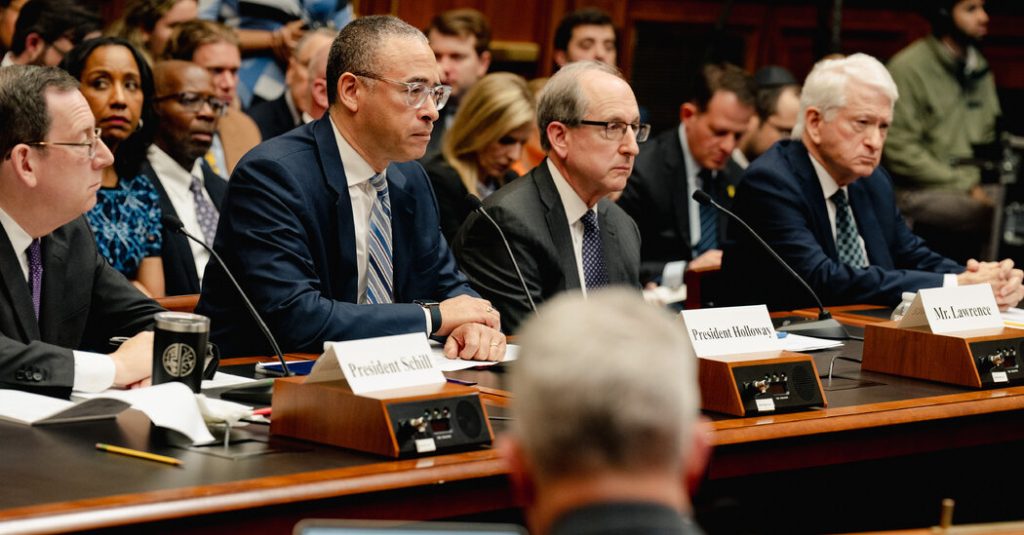This summer, university officials are facing a longer break than usual as campuses are emptying out at the end of the academic year. Congressional Republicans are promising to continue their investigation into college antisemitism, even after a recent hearing that targeted leaders of Rutgers, Northwestern, and UCLA for their handling of campus encampments. Protesters are also vowing to continue their efforts, with walkouts at Harvard’s graduation and new encampments being set up at UCLA. Over the next few months, colleges will need to address ongoing federal investigations, discipline cases, and develop plans for the fall when campuses will fill up again just months before the presidential election.
During a recent hearing, it was revealed that the universities in question had yet to resolve numerous disciplinary cases related to student protesters. UCLA, for example, stated that they were conducting over 100 investigations into student conduct involving antisemitism and Islamophobia. Northwestern and Rutgers also reported ongoing investigations into reports of harassment, with suspensions and other disciplinary actions already taken at Rutgers. University administrators will now need to make disciplinary decisions knowing that Republicans will be monitoring the outcomes closely, potentially leading to suspensions or expulsions for violators of codes of conduct.
Republicans have threatened to cut off financial aid and research funding for universities that they believe have failed to protect Jewish students. Several Congressional committees are investigating possible violations of laws such as the tax code and anti-discrimination statutes at universities across the country. The Department of Education’s Office for Civil Rights has also opened discrimination investigations at various universities and colleges, including Rutgers, Northwestern, UCLA, Harvard, and Columbia. These investigations stem from complaints about antisemitic and anti-Muslim harassment following the Israel-Hamas war.
As fall approaches, college presidents are facing the challenge of preparing for potential protests and demonstrations on their campuses. During recent House hearings, university leaders admitted to being surprised and unprepared for the protests that occurred. With students set to return to campus just two months before the presidential election, administrators will need to be ready for potential activism. Student activists have shown a defiant attitude during protests, refusing to disperse and resisting compromise with administrators to dismantle encampments. Recent actions at UCLA, such as setting up new encampments while the university’s chancellor was at a congressional hearing, indicate that protests are likely to continue.
University presidents are likely feeling anxious about the upcoming fall semester and the potential for more protests and demonstrations on their campuses. With federal investigations, ongoing disciplinary cases, and the threat of funding cuts looming over them, administrators will need to navigate a complex set of challenges. The future remains uncertain as students and protesters continue their efforts to push for change and bring attention to important social issues. College campuses will undoubtedly be a focal point of activism in the coming months leading up to the presidential election.


